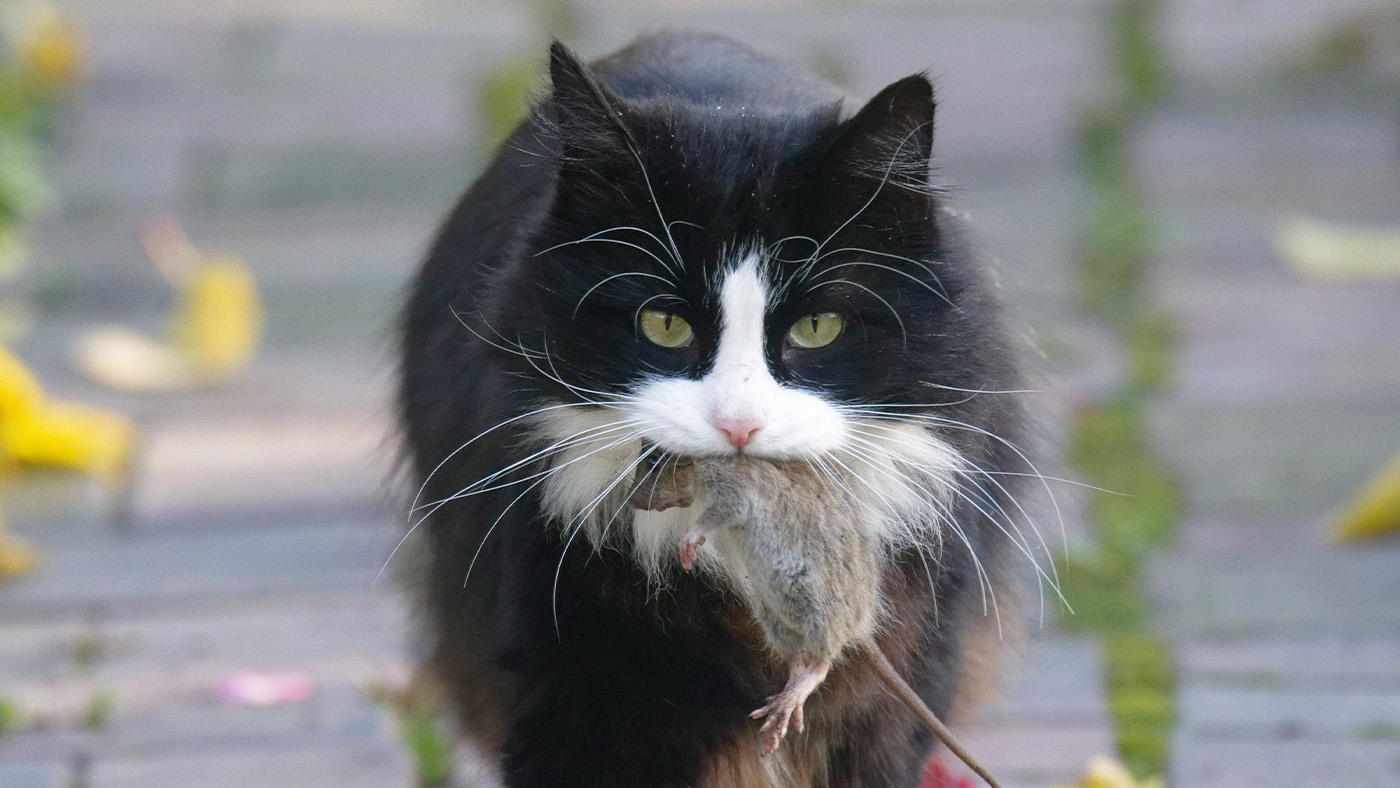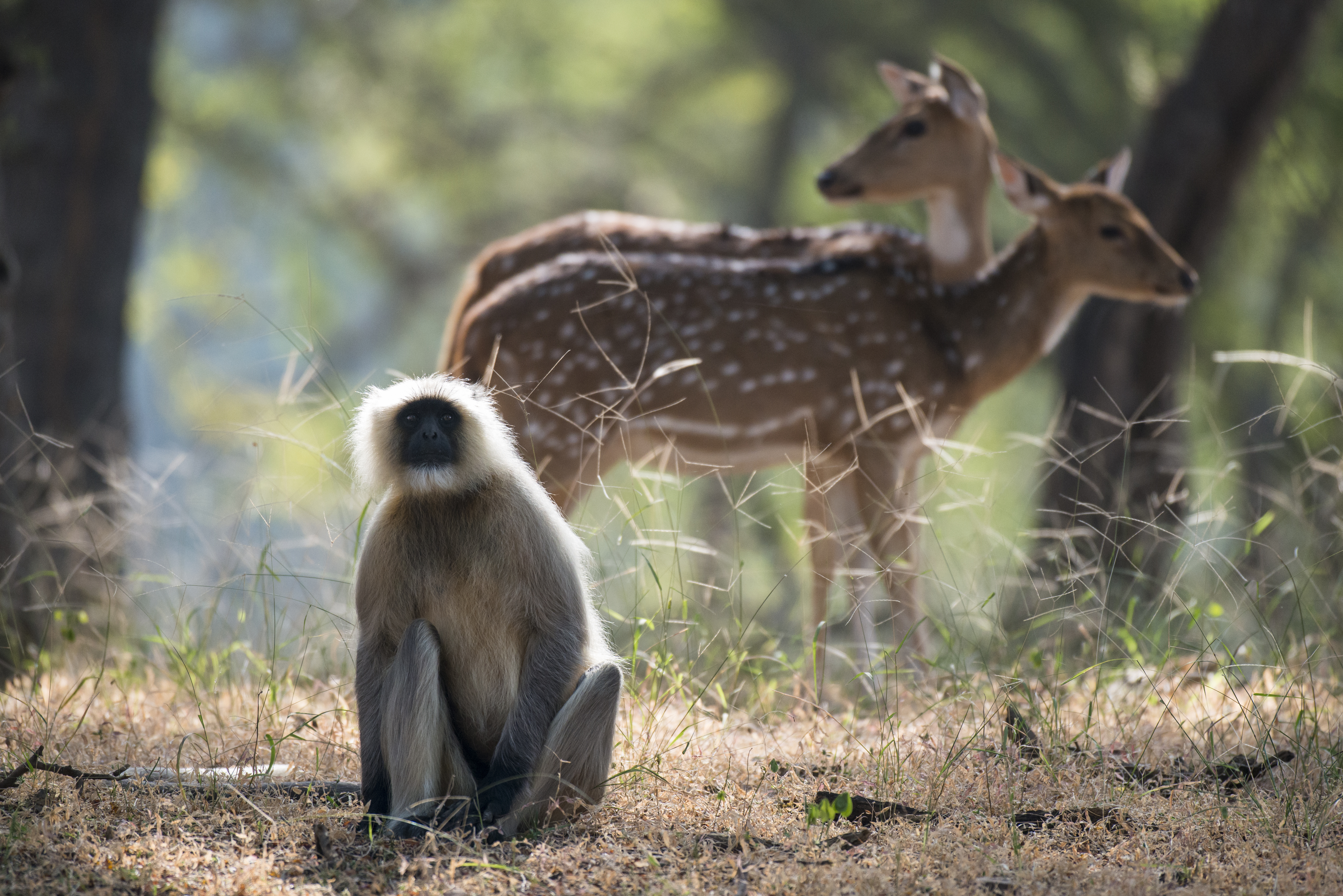Florida cat helps scientists discover a new virus strain – for the second time
The prey seven-year-old Pepper leaves his owner has led to scientific breakthroughs

Get the best advice, tips and top tech for your beloved Pets
You are now subscribed
Your newsletter sign-up was successful
Usually, we think of dogs as being the pets who have jobs, but cats can make some really important contributions, too.
One feline in particular deserves all of the best cat treats after helping scientists discover a new virus strain. It’s the second time that seven-year-old Pepper has done so, thanks to the black shorthair’s habit of dropping his prey off on the front mat of his home.
His cat dad is John Lednicky, a virologist at the University of Florida, who brings the carcasses to his lab. Recently, Pepper gifted Lednicky a chewed-up Everglades short-tailed shrew. Lednicky took it to his lab in Gainesville, and he found out with his team that the shrew was carrying a mutated new strain of orthoreovirus.
This virus is usually found in bats, deer, lions, and monkeys, and can jump between species.

“We wouldn’t have found it without him,” Lednicky said, via the New York Post. The Gainesville shrew mammalian orthoreovirus type 3 strain UF-1 was detected and extracted by PhD student Emily DeRuyter, who co-authored the study.
“I wish I could put [Pepper] as a co-author,” joked Lednicky.
When the virus infects humans, it’s usually mild or symptomless, but it has contributed to rare cases of meningitis, encephalitis, and gastroenteritis in children. Because orthoreoviruses are quite understudied, however, researchers aren’t quite sure about the spread and severity.
Get the best advice, tips and top tech for your beloved Pets
“We don’t know enough about this strain to say that it would be a risk to anyone yet,” said DeRuyter, explaining that it most often causes problems in people with weakened immune systems.
Last year, the clever cat helped uncover a novel jeilongvirus, a rare virus found in rodents that can affect multiple species and was the first of its nature to be found in the UK, when he brought his dad a dead mouse.
The team grew the virus in the lab, giving them the opportunity to examine its traits. “Ideally, animal studies would be done to determine whether the virus causes illness in rodents and other small animals,” said Lednicky at the time. “Eventually, we need to determine if it has affected humans in Gainesville and the rest of Florida.”
Fortunately, Pepper didn’t seem to have been affected by his involvement with the mouse.
“Cats, in general, evolved to eat rodents, and are not sickened by the viruses carried by rodents,” said Lednicky at the time, “But we have to do tests to see whether the virus affects pets, and humans.”
Read next: Why do cats play with their prey? And, should you intervene if your cat catches a mouse?

Adam is a freelance journalist specialising in pets, music and culture, and mental health and wellbeing. He investigates and writes the large majority of news on PetsRadar, and collaborates with veterinary experts to produce informative pet care content.
Adam has a journalism degree from Southampton Solent University and a masters degree in Magazine Journalism from Cardiff University. He was previously senior editor at dog advice website DogTime.com, and has also written for The Independent, GoodToKnow and Healthline.
He owns two rescue cats, Bunny and Dougie, and has also previously had a rabbit, fish and Roborovski dwarf hamsters.
